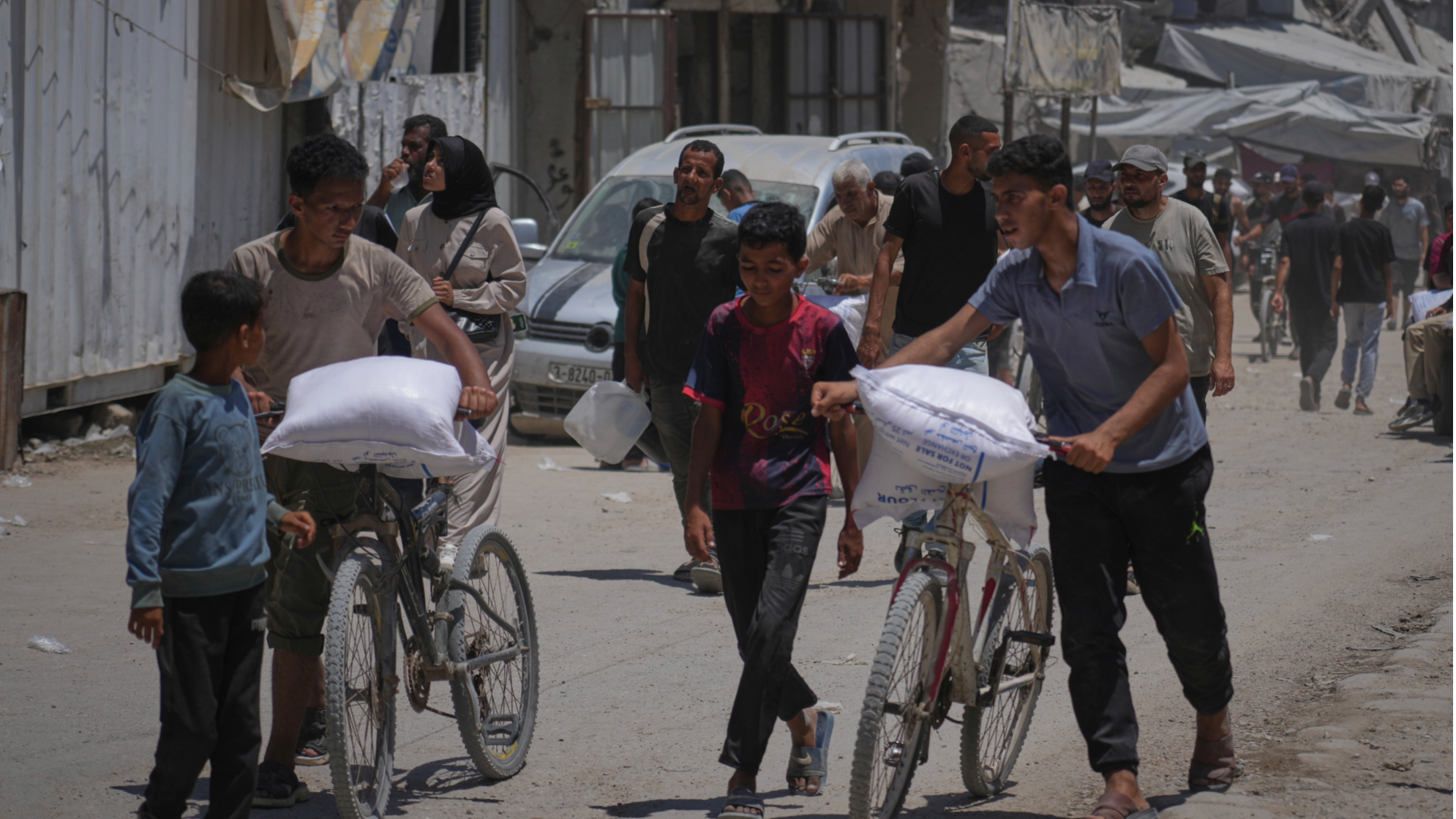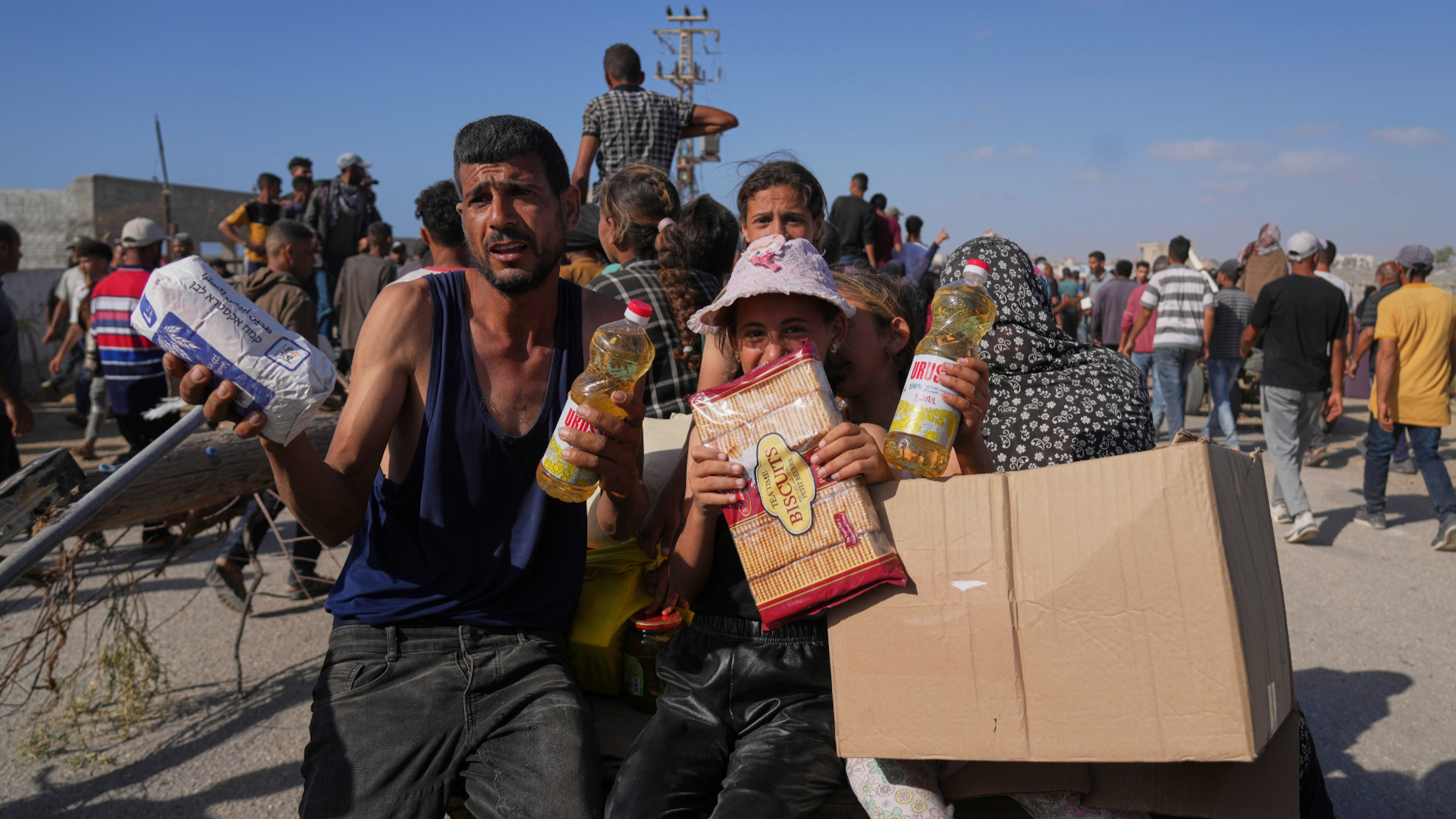
UNITED NATIONS/JERUSALEM - Access to supplies for distribution to hungry Gazans and security risks for aid workers are putting relief operations under severe strain, UN humanitarians said on Wednesday.
Relief workers face significant security risks. Supply crossings remain unreliable and critical supplies are routinely delayed or blocked. The amount of aid that has been entering Gaza is a trickle compared to the immense needs, said the UN Office for the Coordination of Humanitarian Affairs (OCHA).
"Israel must enable safe and unimpeded aid delivery, allow the entry of critical equipment and fuel, open all crossings, and restore movement along key supply routes," OCHA said. "Humanitarian staff must be able to operate safely, people must be allowed to move freely, and supplies, including from the private sector, must reach all parts of Gaza."
The office said if the conditions are met, the United Nations will urgently prioritize providing food, water, shelter, medical care and protection to the civilians of Gaza who have faced unimaginable hardships for far too long. The world body stands ready to seize the opportunity of a ceasefire to significantly scale up humanitarian operations across Gaza, as it did during previous pauses in hostilities, the office said.
ALSO READ: Mistreatment of Gazans decried
OCHA warned that the hunger crisis in Gaza has never been so dire, with aid organizations reporting that as mass starvation spreads across the strip, aid workers and those they serve are wasting away.
The office said its partners report aid workers are fainting from hunger and exhaustion. Despite catastrophic conditions, aid workers continue to deliver life-saving assistance, wherever and whenever possible.
However, the office said that to sustain operations, including nutrition programs, the Israeli authorities must facilitate the delivery of much more aid into and across all areas of the Gaza Strip without delay.
The humanitarians said that hospitals in Gaza are overwhelmed and cannot cope with the influx of patients, including those injured by hostilities, due to a lack of supplies and fuel.
OCHA said that local health authorities reported that in the past few days, several of their health facilities were shut down due to lack of fuel. More hospitals, including Al Shifa, are at risk of shutting down within the next few days.

Humanitarian partners reported that people with disabilities have no food, no assistive devices and no health care. Measures must be taken to protect civilians, including the tens of thousands of people who are older or are living with disabilities.
UN humanitarians said the Israeli authorities are the sole decision-makers on who, how and what enters the strip, adding that logistical challenges are immense.
To collect supplies that have reached any of the fenced-off and heavily guarded Israeli crossings around Gaza, drivers need multiple access approvals, and a pause in bombing for the iron gates to open, said OCHA.
UN Under-Secretary-General for Humanitarian Affairs Tom Fletcher told the Security Council last week that movement requires navigating an obstacle course of coordination with Israeli forces, through active hostilities, traveling on damaged roads, and often being forced to wait at holding points or pass through areas controlled by criminal gangs.
"All too often, civilians approaching UN trucks are shot at," OCHA said. "Collecting supplies safely requires reliable assurances that troops would not engage or be present along convoy routes."
ALSO READ: Israel says 'full victory' needed in Gaza as ceasefire talks continue
Israel's restrictive measures
Meanwhile, Israel's UN Ambassador Danny Danon on Wednesday announced restrictive measures targeting the OCHA, including the denial of a visa renewal for a senior OCHA official and a one-month limit on visas for the agency's international staff.
OCHA responded that the reduction of staff might stifle the "already curtailed efforts."
"Today, I announce that Israel will take steps to ensure that what has been happening with OCHA will no longer continue," Danon told an open debate of the Security Council. "Israel will no longer grant automatic visas to OCHA's international staff. Visas will now be limited to one-month terms."
Jonathan Whittall, OCHA's head of office for the occupied Palestinian territory, will not have his visa renewed, and he will leave Israel by July 29, said Danon.
Deadly strike on Gaza church
Separately, the Israel Defense Forces (IDF) said in a statement on Wednesday that an investigation into the recent strike on a church in Gaza was the result of an "unintentional deviation of munitions."
In the strike on the Holy Family Church in Gaza City on July 17, three people were killed and at least ten were injured.
According to the IDF, the church was accidentally hit during operational activity in Gaza City, with adjustments subsequently made to improve the accuracy of fire.
Following the incident, the IDF said it has further clarified its rules for opening fire near religious sites, shelters, and other sensitive locations.
The IDF emphasized that it has facilitated the entry of humanitarian aid to the Gaza church and coordinated the entry of a Christian delegation to visit the church in Gaza.
In a separate statement, the IDF said its Air Force struck approximately 120 targets throughout the Gaza Strip over the past day. These included militant cells, military structures, tunnels, booby-trapped structures, and additional militant infrastructure sites.
It added its troop, identified and eliminated Hamas militants during operations in the area of Jabalia.


